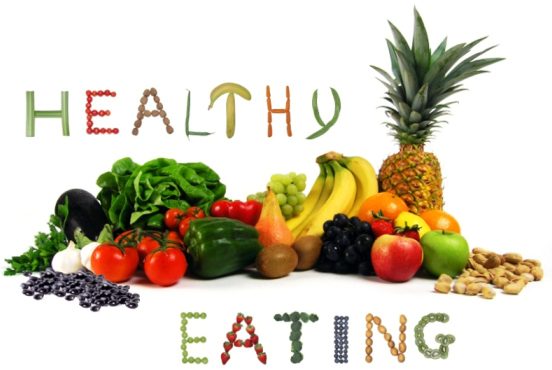Cramps, muscle recovery and when to carb and how to carb!
I get cramps in my calves. Do I need more salt?
Maybe – sweating heavily during exercise can result in low blood salt (sodium) levels, which are associated with cramps. But don’t start sprinkling salt on your food just yet – the most common reason for muscular cramps is actually dehydration, not salt. If you are suffering from cramps regularly, start by drinking plenty of fluid before, during and after training to minimise your risk of dehydration. Sipping on sports drink might be a good idea, too, as these can help replace salt (sodium) losses as well as rehydrate you. Finally, try stretching and massaging the cramped muscle to alleviate the pain, and use the opportunity as an excuse to have a soak in the bath – these actions can help aid a faster recovery.
What is a good substitute for lowering cholesterol (in place of oats or porridge) if you are gluten intolerant?
Foods that are good sources of soluble fibre have been shown to help lower cholesterol. Gluten-free foods that are high in soluble fibre include rice bran, psyllium husks, chia seeds, amaranth, quinoa, legumes (such as baked beans, kidney beans, and soy beans), lentils, chickpeas and fruit (preferably with the skin on).
The other day a friend sent me a copy of an email about margarine, warning that margarine is only one molecule away from being plastic … and shares 27 ingredients with paint! Is this true?
When we examine the chemical structures of both materials, it is easy to see why someone would suggest this; while margarine is safe to eat, it has a similar chemical backbone structure to plastic. However, the same could be said about butter, or any fatty acid present in the human body. Many varied substances share similar chemical properties, but even the slightest variation in molecular structure can make the world of difference.
 What is better for muscle recovery after exercise – a cold shower or a warm one?
What is better for muscle recovery after exercise – a cold shower or a warm one?
D. Stuart Warmington, lecturer in the School of Exercise and Nutrition and Exercise at Deakin University, responds: You need to define what you mean by ‘recovery’. When you exercise, your muscles develop tiny micro tears which , when patched up, result in muscles that are less easily damaged when you next exercise. But, in the meantime, this can result in that achy, painful feeling you get after exercise and, unfortunately, nothing can accelerate the repair process. However, there is some evidence to suggest that having a cold shower or bath straight after a workout can help your muscles return to peak performance levels more quickly. When you have a hot shower, the blood vessels in your skin react to the heat by dilating and filling with blood (which is why your skin turns red). This extra blood must come from somewhere, so it is taken away from other organs- like your muscles. But having a cold shower causes those vessels in the skin to constrict, releasing blood and allowing it to flow to your muscles. This improved blood flow may help your muscles ‘flush out’ performance-inhibiting waste products faster, allowing you get to get back to exercising at peak performance.
Is the food produced in glasshouses or hot houses deficient in vitamin D, due to lack of full sunshine? If not, where does the food get its vitamin D from?
Tricky question! While UV light is somewhat harmful to plants, recent work suggests that they do require it for some functions, including the formation of Vitamin D. You would have to assume that plants growing in hot houses receive some UV light otherwise they would not grow properly. Swedish research has also shown that even if plants don’t get enough UV light to produce their own vitamin D, they still produce provitamin D, a vitamin D precursor that forms at equivalent levels with or without exposure to UV light in plants. So whether conventionally grown or hothouse, it does not matter.
If I eat carbs after 5pm can I still lose weight?
I can’t tell you the number of times I have been asked about not eating carbs after 5pm when trying to lose weight. It is one of those modern myths that needs to be laid to rest once and for all. If you eliminate starchy carbs such as pasta, rice, potato or bread at dinner, all you are eliminating, is kilojoules. There’s nothing ‘fat burning’ about the timing. You wont lose weight any faster. It is simply a way of reducing your intake. For instance, cut out a large potato and you reduce your intake by 120 calories. Say ‘no’ to a cup of steamed rice and you are down 154 calories. Avoid a cup of cooked macaroni and zap 167calories. So, out of a total dinner intake of 300 calories for grilled steak, potato and salad, you can knock off nearly 50% of the calories if you ditch the carbs. That is why you lose weight!
However, saying ‘no’ to starchy carbs creates an unbalanced meal. Steak with salad, or chicken and veg stir-fry, needs a small amount of carb to satisfy your appetite and balance glucose levels. Without this balance, you will soon be searching for something sweet because you are still hungry. For some reason, people forget that sugars are carbs also, and are much easier to over consume. For instance, two chocolate biscuits or 2 scoops of ice cream contain about 200 calories; which is more than an average potato. But the trouble is, sweets (high in sugar and fat, and high GI) before bed are not the same as wholegrains or low GI carbs. Such ‘smart’ carbs – in modest portions – are a better choice. Especially when you take into account that the quality of your insulin varies at night, making slower-digesting carbs easier on the body.
Irrespective of the whole carb debate, eating a light dinner, and skipping dessert can assist in your weight loss. Our metabolic rates actually drop during the evenings, so it is harder to burn off a heavy meal at night. Especially when we are least active – often sitting in front of the TV at night.
In conclusion a light but balanced dinner will help guard against late night binges and this will impact your weight!
